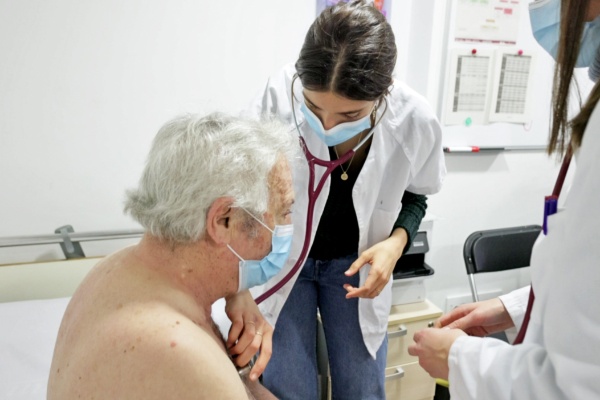Different studies have shown that there is a relationship between socioeconomic indicators and the permanence of patients in care programs for chronic diseases, which can impact on the reduction of their life expectancy or an increase in hospitalizations. Now, with this work, the Bellvitge Hospital, together with the IDIBELL Cardiovascular Disease Research Group (BIO-HEART), has been the first center to assess the impact of socioeconomic status on the effectiveness of global heart failure programs. According to the retrospective analysis of the cases of 77,500 people with heart failure discharged in Catalonia between 2015 and 2019, the implementation of multidisciplinary programs that integrate primary and hospital care brings benefits regardless of the socioeconomic level of the patients.
To carry out the study, the cases of the patients studied have been divided into two large groups: those treated in the Bellvitge Hospital and the people treated in the rest of the Catalan healthcare areas. Overall, the results of the study indicate that, during the consolidation period of the Multidisciplinary Community Heart Failure Unit of the HUB (years 2018-2019), there has been a significant reduction in readmissions and deaths directly related to heart failure among the patients of the unit in relation to the rest of Catalan patients.
Considering the specific effect of socioeconomic inequalities, the study shows a reduction in mortality at low and very low levels in the HUB area in relation to the rest of the territory. In the same way, the risk of death, which is lower among people in the high or very high strata, also sees this trend accentuated among people with heart failure treated in the HUB compared to the rest of Catalonia.
As summarized by Dr. Josep Comín, head of the Heart Disease Area at the HUB and principal investigator of IDIBELL’s BIO-HEART group, “with this study we have shown, on the one hand, that socioeconomic inequalities are a predictor of evolution of patients with heart failure, and on the other that the implementation of a model program and comprehensive primary care optimizes the control of the disease, regardless of the socioeconomic situation of each person”.

